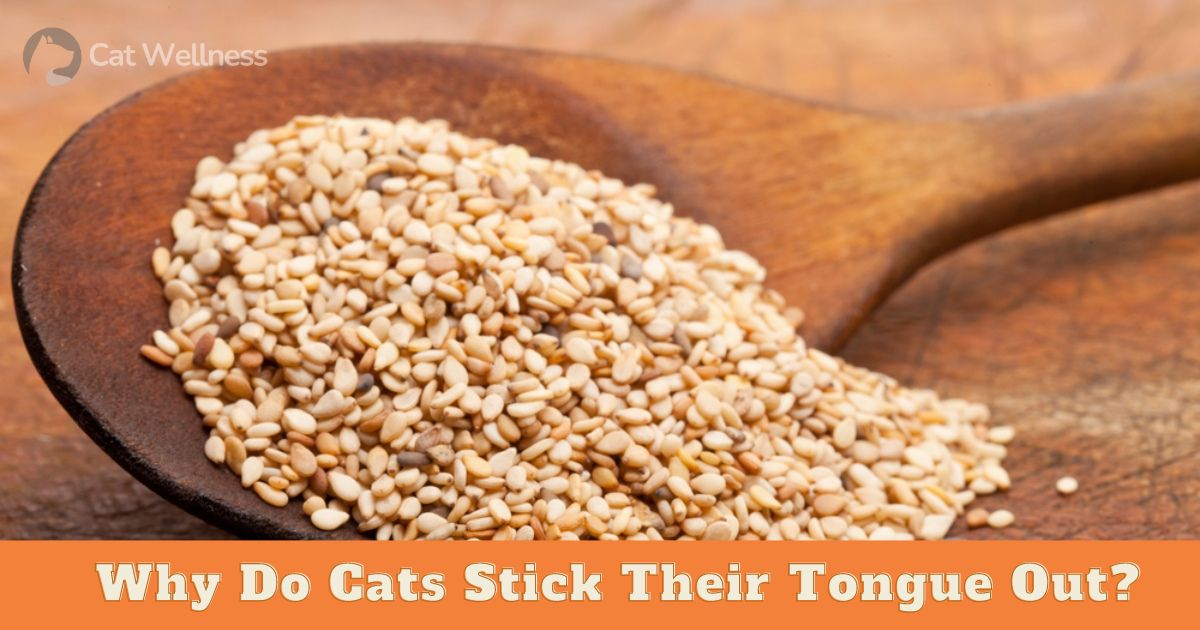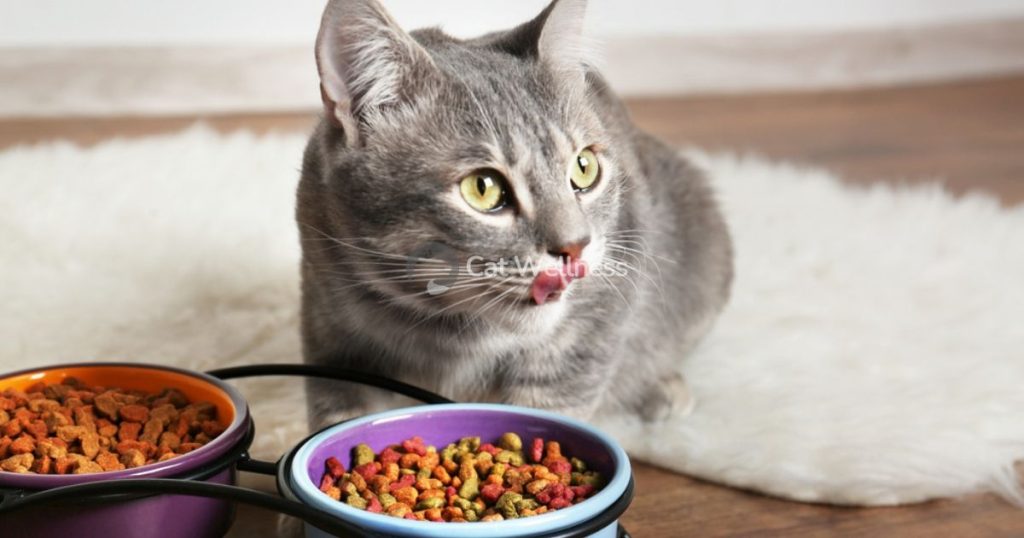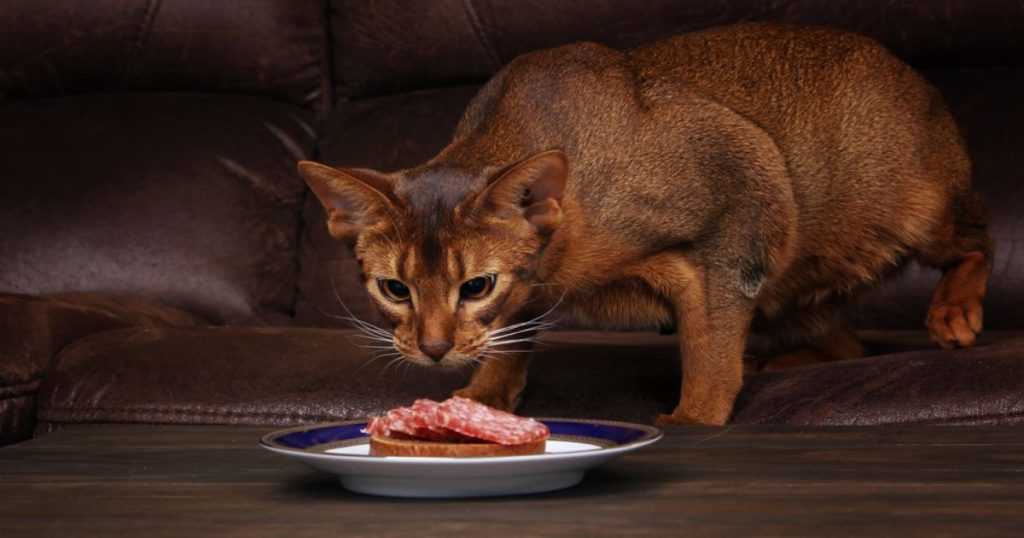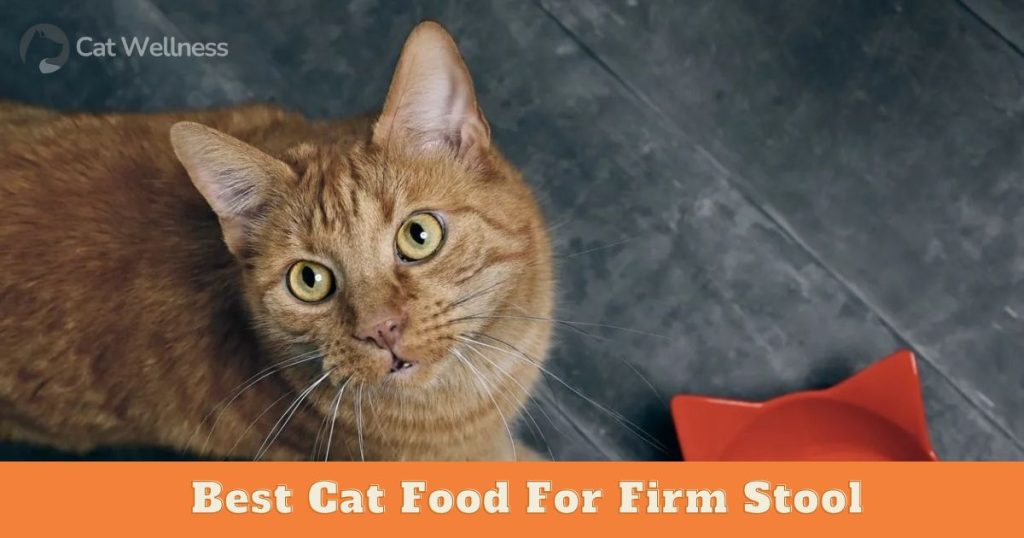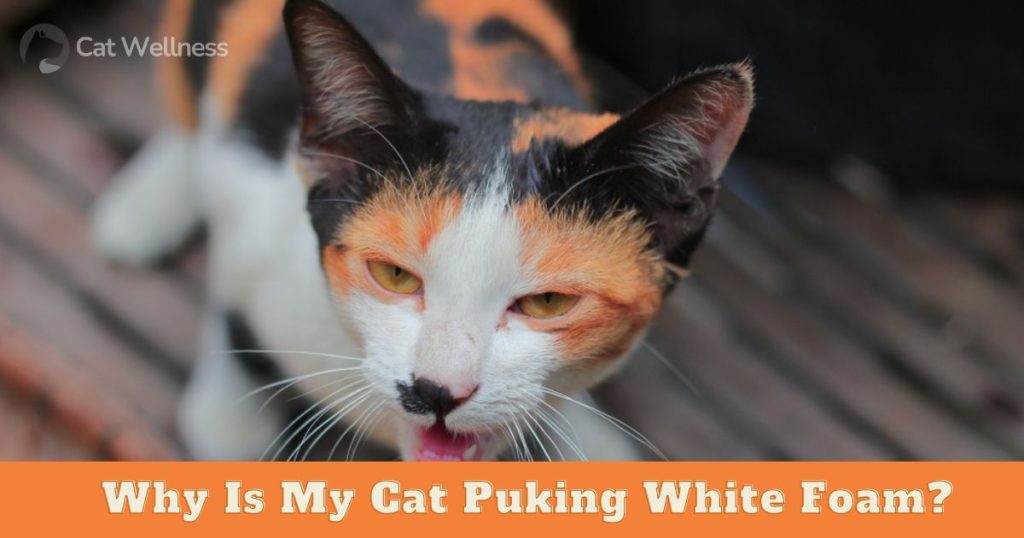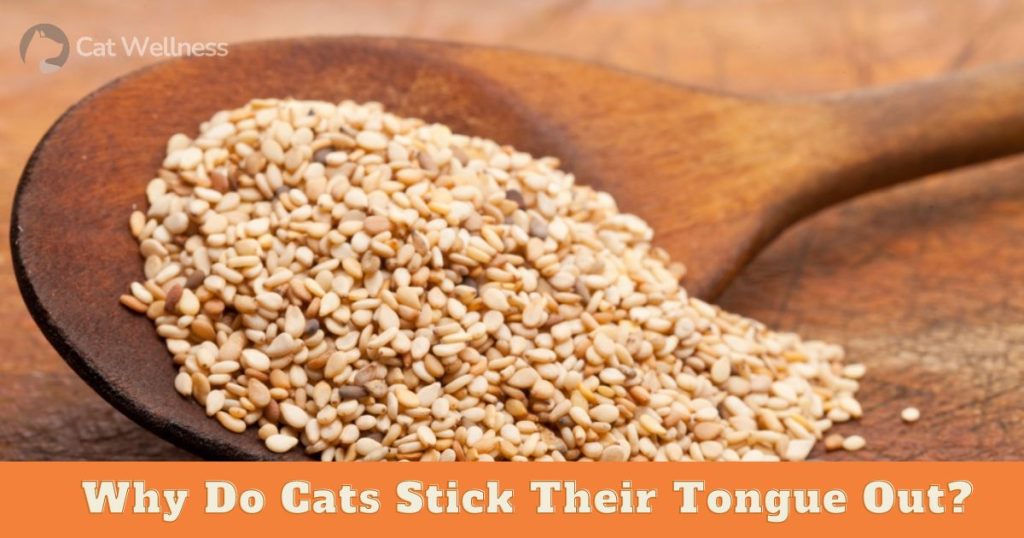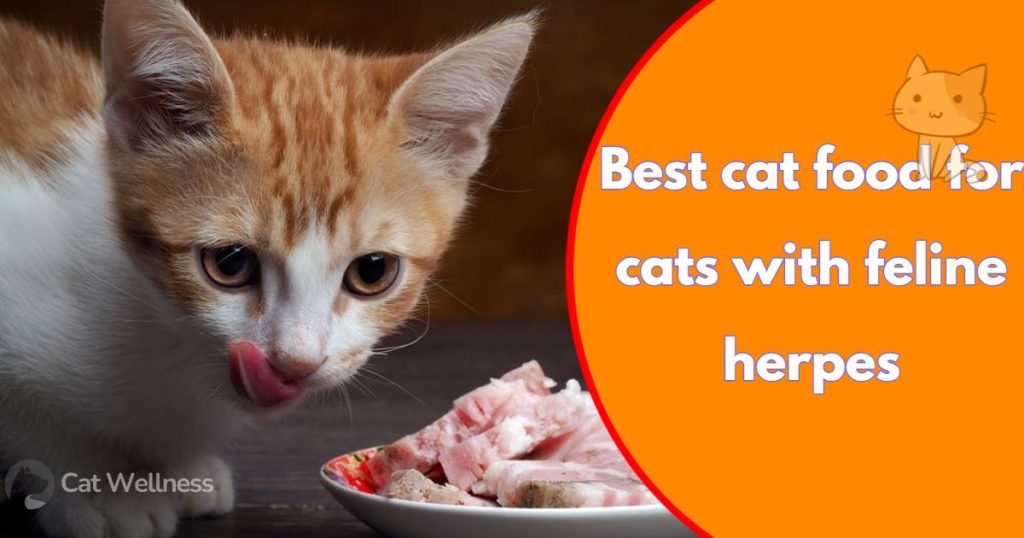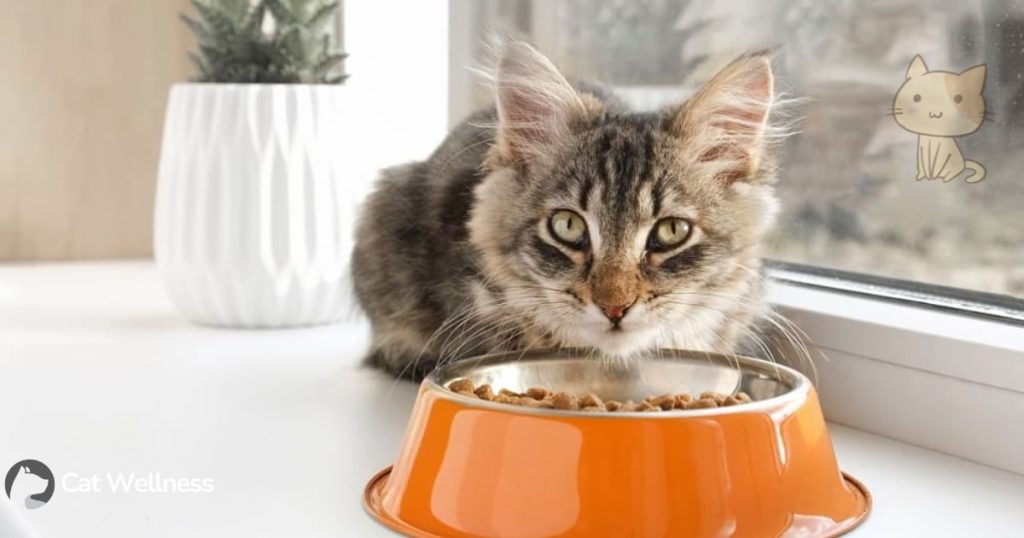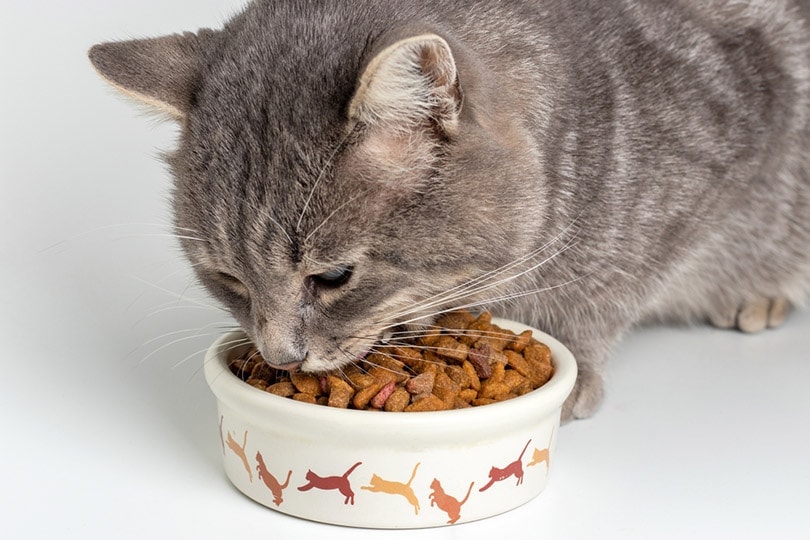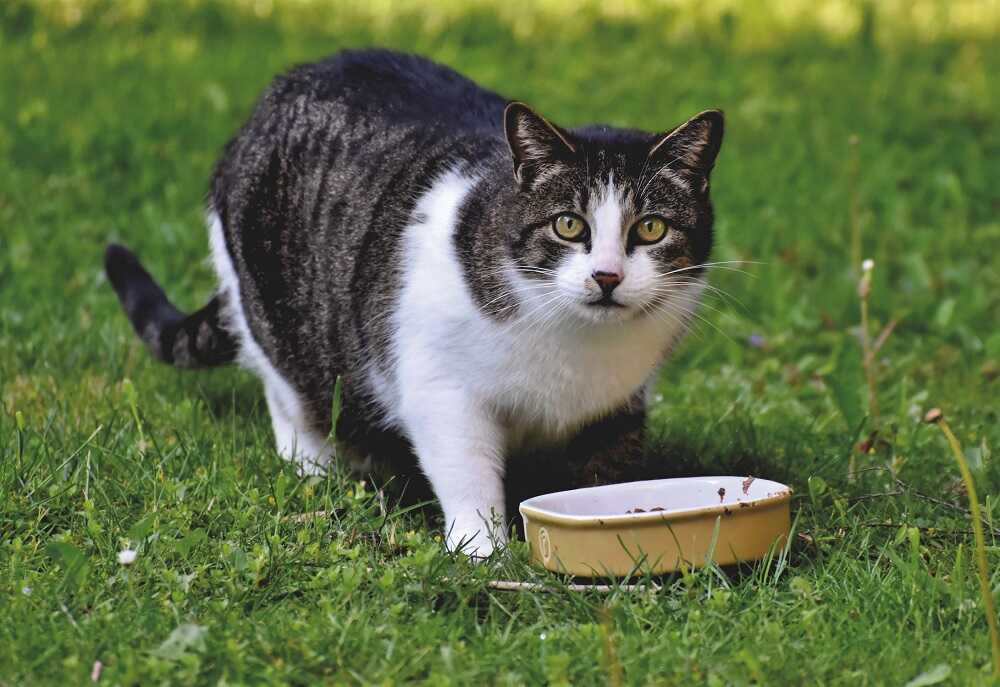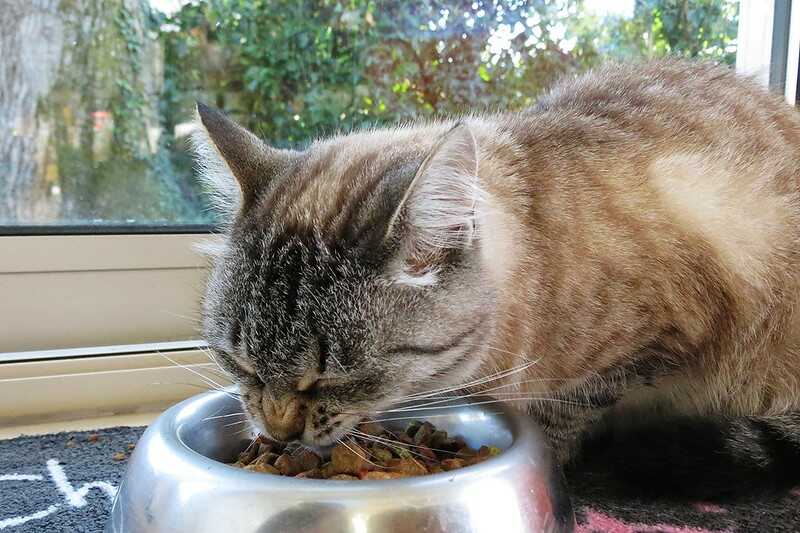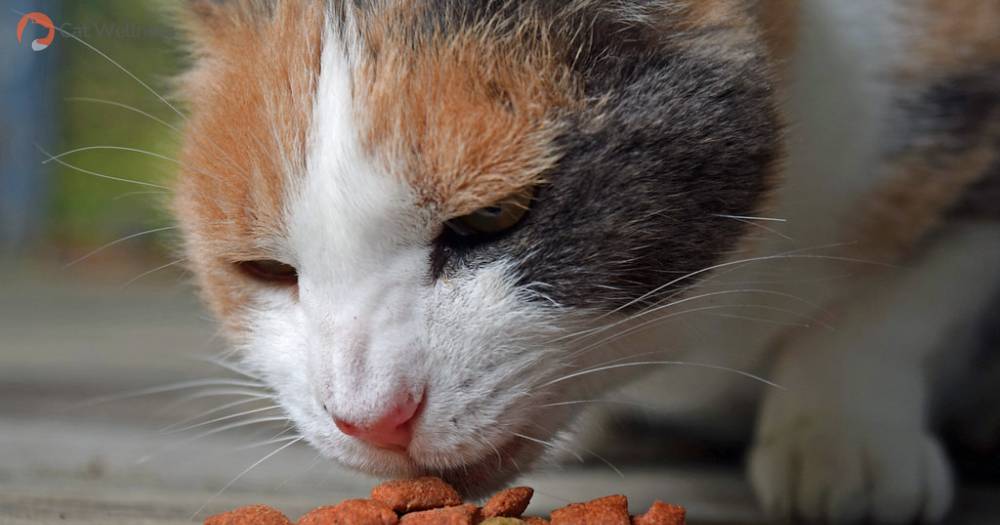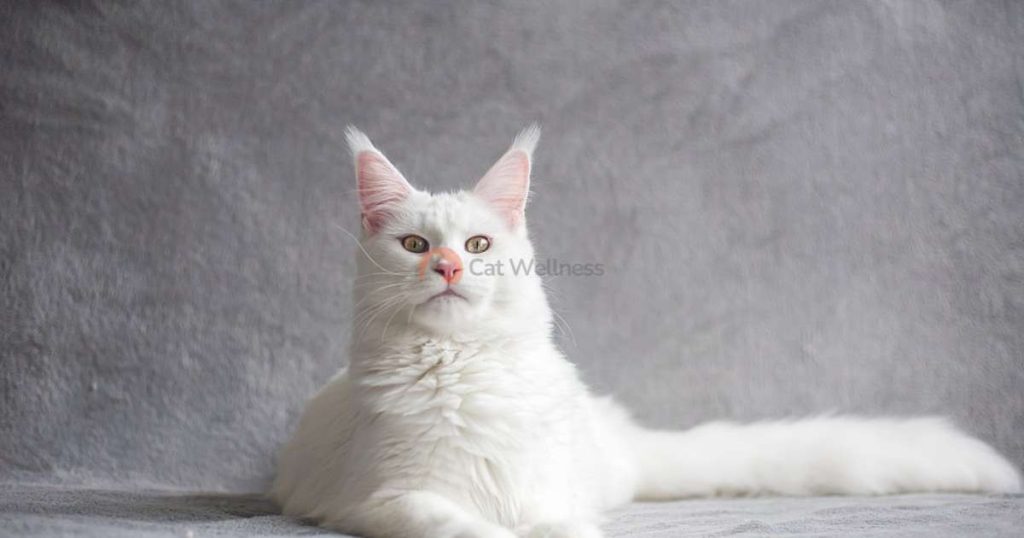Cats often exhibit peculiar behaviours, and one such quirk is the habit of sticking out their tongues. If you’re a cat owner, you’ve probably observed this odd behaviour and wondered its underlying reasons.
In brief, why do cats stick their tongues out? There are several potential explanations for this phenomenon, ranging from dental problems and “bleeping” to fur adhering to their tongues, gastrointestinal discomfort, or simply a state of profound relaxation. Continue reading to delve deeper into this intriguing feline behaviour.
Why Do Cats Stick Their Tongue Out? 15 Reasons To Consider
Cats stick their tongues out for various reasons, and it can be perfectly normal behaviour in many situations. Here are some reasons why cats might stick their tongues out:
Your Cat Is Blepping
Blepping is when a cat or dog leaves their tongue sticking out, often due to a momentary lapse in retracting it. This can happen after grooming, being startled, or getting distracted while eating or smelling something interesting. It is generally considered normal if the cat doesn’t seem distressed or do it constantly.
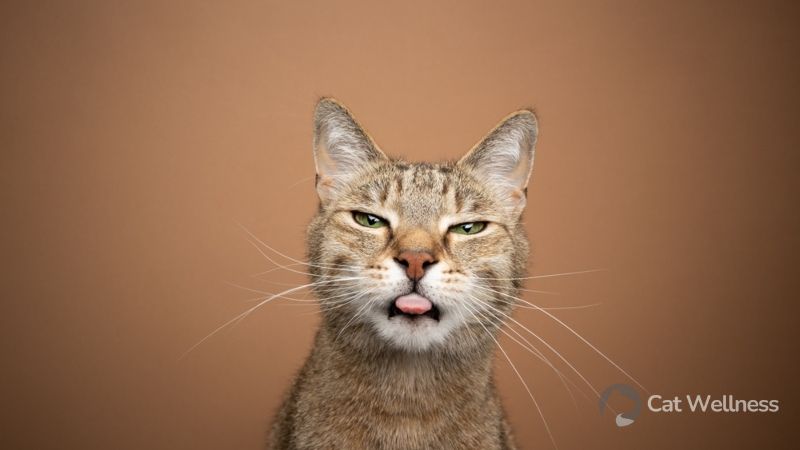
However, suppose your cat suddenly starts bleeping all the time or other changes in their behaviour accompany it. It’s a good idea to consult your veterinarian, as consistent bleeping in senior cats might indicate dementia.
Your Cat Is Relaxed or Sleeping
Cats, like humans, can have their tongues sticking out slightly when deeply relaxed or sleeping. During sleep, their muscles relax, which can cause their mouth to open slightly and their tongue to be visible. It’s usually not a cause for concern and is a sign that your cat is in a deep, comfortable sleep.
Something Is Stuck to Her Tongue
Cats have tiny hook-like structures called papillae on their tongues, which give their tongues that sandpaper-like texture. These papillae grasp onto food, remove loose hair during grooming, and help them lap up water.
Sometimes, foreign objects or substances like loose fur or food particles can get stuck to a cat’s tongue. When this happens, your cat might stick out its tongue to dislodge whatever is caught on it.
Certain cat breeds, such as Persians, Himalayas, and Burmese cats, are brachycephalic, meaning they have flat or short noses. Cats with this facial structure may have difficulty keeping their tongues inside their mouths due to their unique anatomy.
Related Post: What Does A Cat Do Before Death?
Motion Sickness, Stress, or Anxiety
Cats may exhibit tongue protrusion while travelling in cars or during stressful events. Motion sickness, often accompanied by stress and anxiety, can lead to this behaviour. Calming measures like desensitisation training, pheromone sprays, or using a ThunderShirt can help reduce anxiety during such situations.
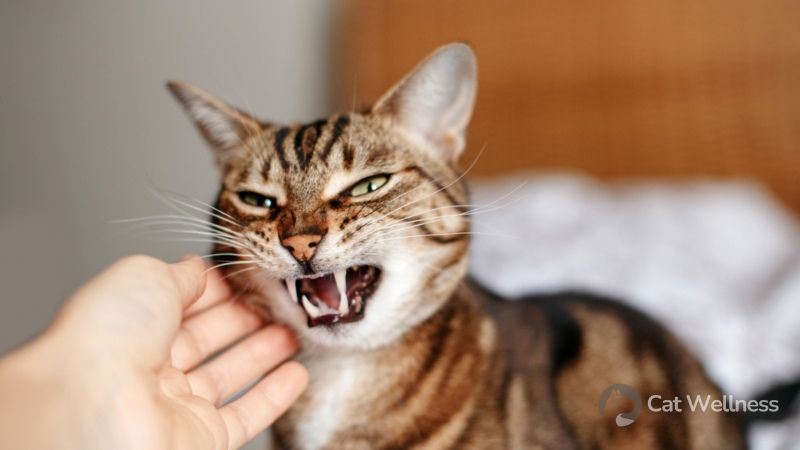
Nausea
Cats can experience nausea, which may manifest as excessive lip licking or flickering of the tongue. Numerous factors can induce nausea in cats, including dietary changes, consuming indigestible substances, eating too quickly, overeating, spoiled food, unpalatable items, allergies, hairballs, specific medications, and more. Identifying the cause and seeking veterinary care is essential when a cat appears nauseous.
Neurological Issues
Abnormal movements of the tongue can be linked to neurological or neuromuscular diseases. When neurological problems are involved, the cat may have other atypical movements or behaviours.
One rare but serious condition affecting cats is Feline Orofacial Pain Syndrome, often characterised by repetitive tongue protrusion or chewing at the paws, tongue, and cheeks to the point of self-injury. This condition is commonly found in Burmese cats and necessitates prompt veterinary attention.
Respiratory Infection or Blockage
If your cat has a respiratory infection or blockage, such as asthma or an obstructed airway, they may stick their tongue out. This can indicate laboured breathing and a struggle to get enough air.
Cats with respiratory issues may also cough and have blue-tinged gums or tongues. In such cases, immediate veterinary attention is crucial to address the underlying problem and ensure the cat’s well-being.
Overheating
Cats don’t typically pant like dogs to cool down, so if your cat sticks out their tongue pants or appears sluggish on a hot day, it could be a sign of heatstroke. Overheating can be dangerous for cats.
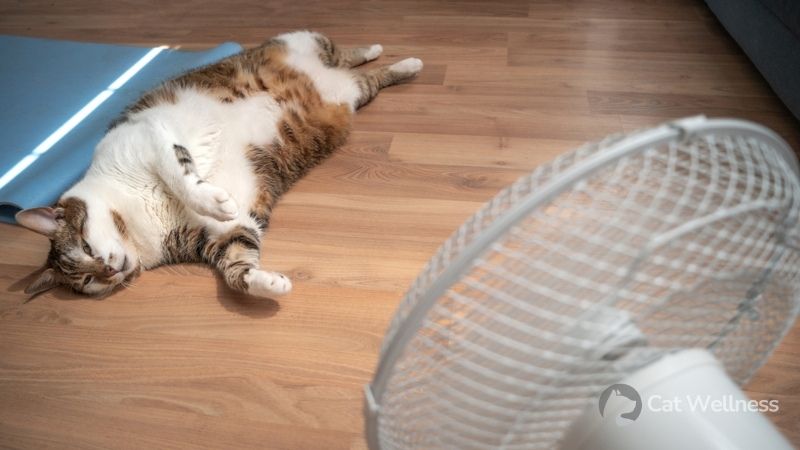
To help them cool down, move them to a cooler environment, provide fresh water, and monitor their condition closely. If they become distressed or collapse, seeking prompt veterinary care is essential.
Periodontal Disease
When a cat’s tongue is frequently sticking out and accompanied by excessive drooling, a lack of interest in food, discomfort while eating, or bad breath, it may indicate periodontal disease. This condition is caused by the buildup of bacteria and food particles on the cat’s teeth, leading to plaque formation.
Just like in humans, good dental hygiene is crucial for cats. Regular dental check-ups and cleanings are recommended, starting as early as one year of age, to prevent the progression of dental problems like gingivitis and periodontal disease.
Related Post: Why Does My Cat Put His Paw on My Mouth?
Stomatitis
Stomatitis is a painful inflammation in a cat’s mouth, affecting the gums, tongue, and other oral tissues. Cats with stomatitis may display symptoms such as decreased appetite, drooling, bad breath, and unkempt fur.
Sticking out the tongue and pawing at the face can also be signs of this condition. Stomatitis requires veterinary attention to manage the inflammation and alleviate the cat’s discomfort.
Dental Disease
Dental problems, such as gingivitis, periodontitis, and tooth resorption, are common in cats. Kittens, in particular, may use their tongues to move loose baby teeth around, which is a natural reaction. Regular dental checkups and teeth brushing can help maintain good oral health, preventing tongue-related behaviours that may arise from dental discomfort.
Eating and Drinking
Cats stick their tongues out while eating or drinking to help transfer cat food and scoop up water into their mouths. Their tongues are versatile tools designed for this purpose. After a meal, cats may use tongues to clean their teeth by loosening any remaining food particles.
Grooming
Cats have unique tongues with tiny, sharp barbs that give them a rough texture. These barbs are essential for grooming. Cats use their tongues to remove loose fur, dirt, and debris from their fur. Sometimes, they may take a break from grooming, leaving their tongues hanging out.
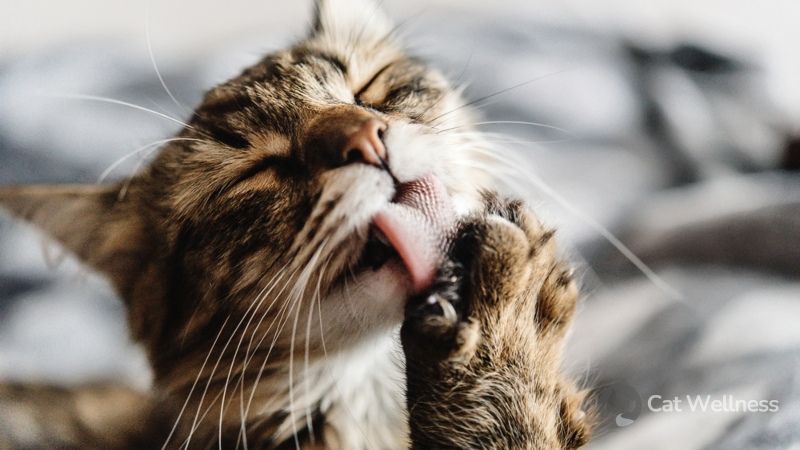
Sleeping
Cats sticking their tongues out while sleeping or relaxing is a sign of complete relaxation. Like humans, when cats are at ease, their muscles and joints loosen up, and this relaxation may extend to their tongue, causing it to protrude slightly.
The Flehmen Response
The Flehmen response is a unique behaviour where cats stick out their tongues and make a peculiar facial expression with their lips curled back. This behaviour typically occurs after cats have taken a whiff of something in the air. Cats have a highly developed sense of smell, and the Flehmen response allows them to investigate scents more thoroughly.
Opening their mouths facilitates the transfer of scent molecules to the vomeronasal organ, also known as Jacobson’s organ, located on the roof of their mouth. This organ helps them “taste the air” to identify potential prey or predators and gather more information from their environment.
FAQs
Can stress or anxiety cause cats to stick their tongue out?
Stress or anxiety can lead to unusual behavior in cats, but sticking the tongue out is not a common response to these emotions. If you suspect stress or anxiety, it’s best to consult a vet for guidance.
Is it okay to playfully pull a cat’s tongue out or touch it?
It’s not recommended to pull or touch a cat’s tongue. Cats are sensitive about their mouths, which could lead to discomfort or a defensive reaction. Respect their personal space.
How can I prevent dental issues that make cats stick their tongue out?
Regular dental care, such as brushing your cat’s teeth, providing dental treats or toys, and scheduling dental check-ups with your vet, can help prevent dental problems.
Are there specific cat breeds more prone to sticking their tongue out?
While some cats may be more prone to sticking their tongue out due to genetic factors, no specific breeds are known for this behaviour
When should I seek immediate veterinary care if my cat’s tongue is out excessively?
If your cat’s tongue is consistently out and they appear distressed, have difficulty eating, or exhibit other concerning symptoms, seek immediate veterinary care to rule out any underlying health issues.
Conclusion
In conclusion, Cat Wellness covered the question: Why do cats stick their tongue out? Cats stick their tongues out for various reasons. It can be a sign of relaxation, grooming, or even due to dental issues. Understanding the context and observing your cat’s overall behaviour is essential in deciphering the reason behind this adorable feline behaviour.
Recommended Reading

